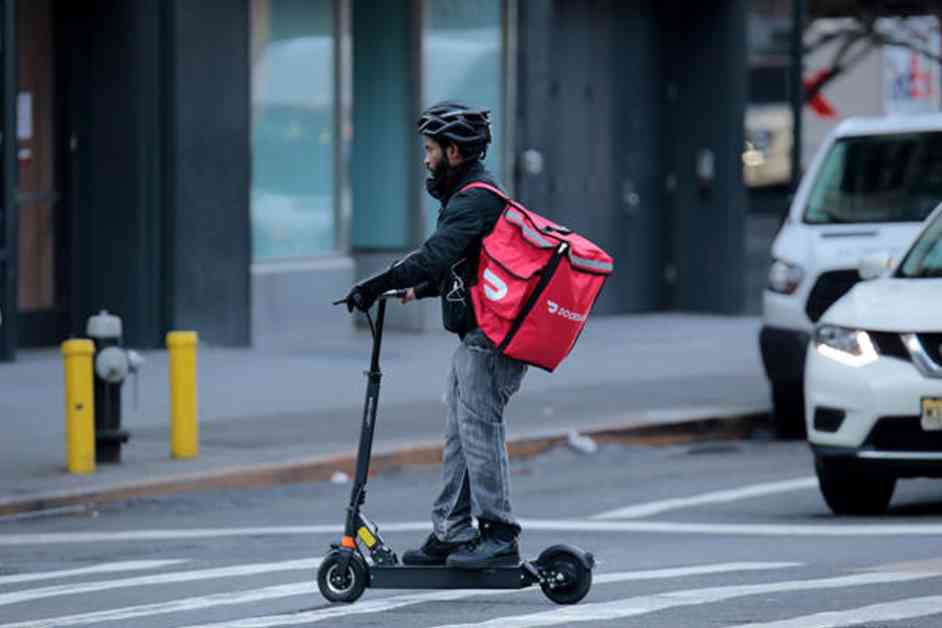DoorDash Shifts Towards Full-Time Employment Model
DoorDash, a prominent player in the gig economy, is making waves with its recent decision to partner with local companies in an effort to hire full-time employees with benefits. This move has sparked discussion about whether the company is gradually moving away from its traditional contractor-based business model.
The Local Commerce Service Partner Program by DoorDash has joined forces with two local delivery providers, one in Austin, Texas, and another in Fresno, California. These providers are now responsible for recruiting and hiring employees to fulfill DoorDash orders, marking a significant departure from the gig-worker model DoorDash has been known for.
Partnerships with Local Providers
Both companies’ websites indicate that they are hiring W-2 employees, a stark contrast to the gig-worker model that has been the cornerstone of DoorDash and other delivery services. This shift comes on the heels of a new rule introduced by the US Labor Department to help gig workers qualify for employee status.
While these partnerships may currently be on a small scale, they represent a notable shift away from the business model that propelled DoorDash to its status as a global leader in delivery services. Since its establishment in 2013, DoorDash has heavily relied on independent contractors who are paid per delivery and enjoy flexibility in their work hours compared to traditional employees.
Uber, Lyft, Instacart, and other delivery companies have similarly utilized gig workers to drive their growth, leading to millions of Americans entering the gig economy. A spokesperson for DoorDash emphasized that employing hourly workers with set shifts ensures a consistent workforce to fulfill deliveries.
“We are committed to preserving the flexibility of independent work that the majority of Dashers prefer,” the DoorDash spokesperson stated. “However, we recognize that there is a subset of workers who prefer set schedules and the predictability of W2 work, which is why we are piloting the LCSP program in select markets to maintain a healthy supply of workers and handle different types of orders.”
Concerns and Challenges for Gig Workers
According to DoorDash’s website, Local Commerce Service Partners (LCSPs) are independent businesses that operate their own delivery services, employing their fleet of delivery associates to fulfill orders placed through the DoorDash platform. Fresno Logistics, one of the partner companies, offers a range of logistics services to businesses in the Fresno, CA area through the DoorDash platform.
Fresno Logistics’ website highlights enticing benefits for potential employees, including a $16 hourly wage, tips, mileage reimbursement, healthcare, and paid time off (PTO). This offer stands in contrast to the earnings of many gig delivery workers, as a recent UC Berkeley study revealed that numerous workers earn less than minimum wage after factoring in expenses like gas.
Austin-based LCSP One offers W-2 workers an hourly wage of $13 plus tips and a mileage reimbursement of 10 cents per mile. Full-time delivery employees at LCSP One work four 10-hour shifts scheduled from Monday to Friday each week, while part-time workers must complete a minimum of 20 deliveries.
LCSP One’s website describes the company as offering employees “a gig-work mentality with a career mindset.” Despite their attractive offerings, Fresno Logistics and LCSP One did not respond to requests for comment from Business Insider.
Many gig workers face challenges such as the lack of benefits and legal protections provided to employees. Some gig workers have reported a decline in their earnings over the past few years, particularly compared to the surge in demand seen in early 2020 for grocery and takeout delivery services.
Some gig workers have also raised concerns about their delivery app accounts being deactivated without clear explanations, as well as performance metrics that mirror traditional job requirements. Employing delivery workers could address some of these issues by providing more predictable pay and reimbursing them for mileage.
Proposed Rule for Gig Workers
A 2022 report detailed a proposed Department of Labor rule currently under review by the White House’s Office of Information and Regulatory Affairs (OIRA). This rule aims to clarify whether gig workers for companies like Uber, Lyft, DoorDash, and retailers like Amazon.com Inc. are misclassified as independent contractors.
In addition to potential changes in classification, DoorDash’s move to employ full-time workers through partnerships with local providers could signal a broader shift in the gig economy landscape. As the industry continues to evolve, it will be essential to monitor the impact of these changes on both workers and companies operating in the delivery service sector.
Overall, DoorDash’s decision to test a transition to full-time employees marks a significant development in the gig economy space, potentially setting a new precedent for how companies approach employment models in the future.













